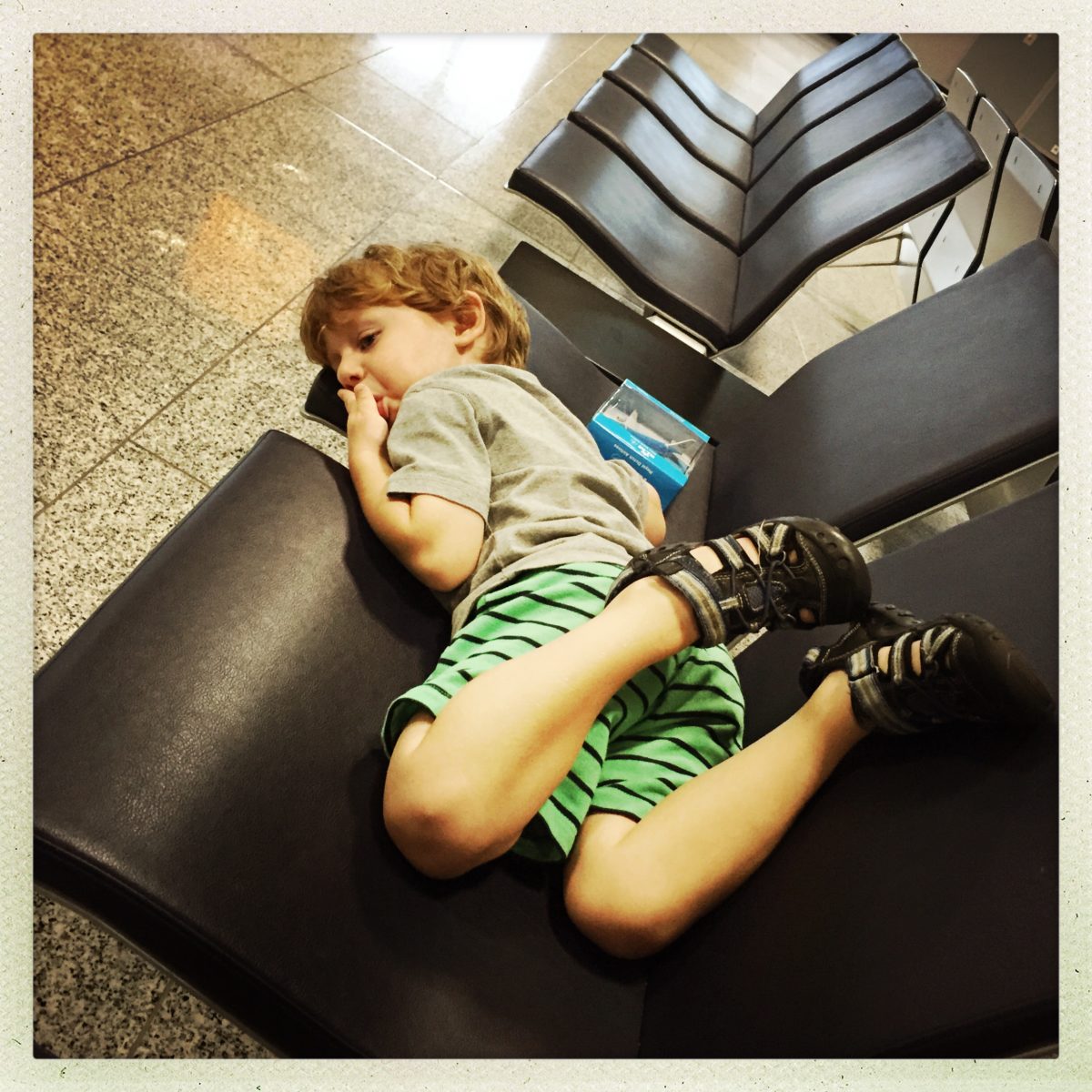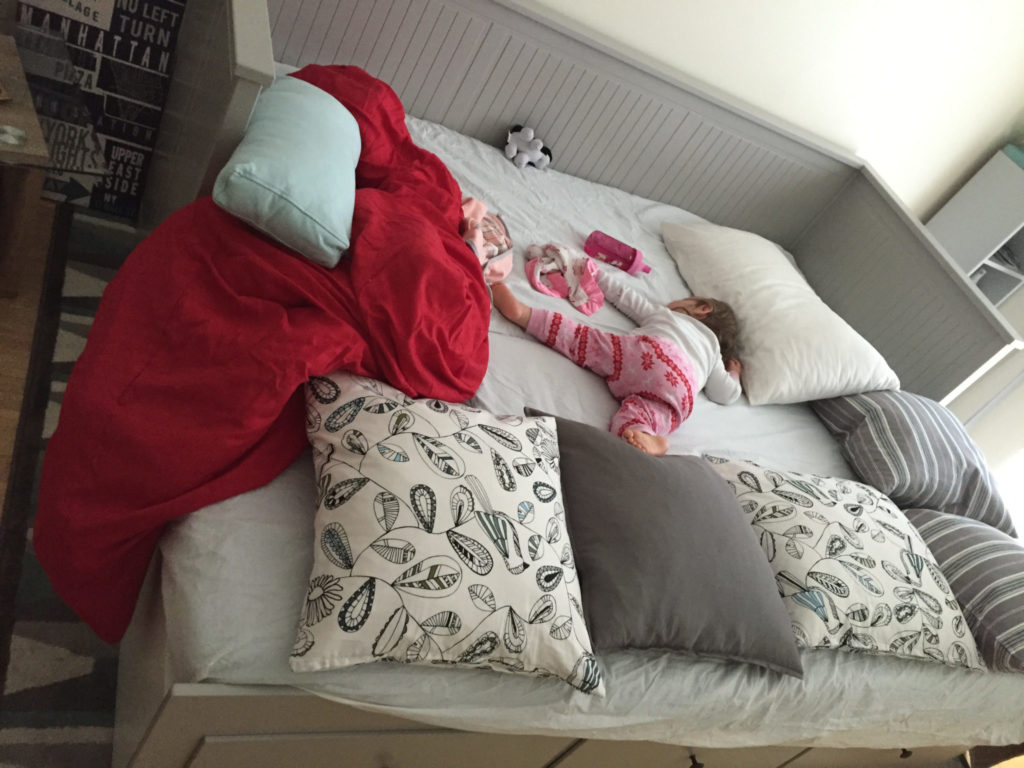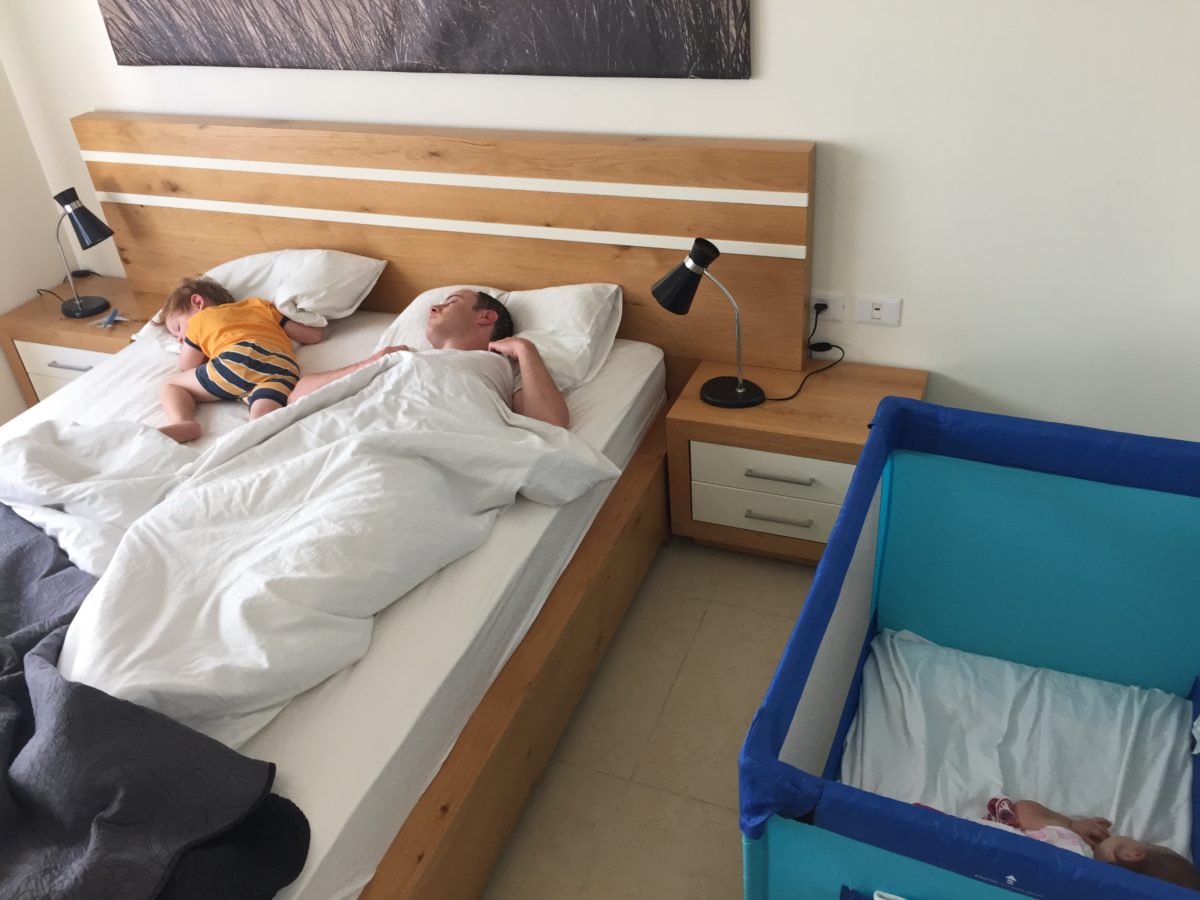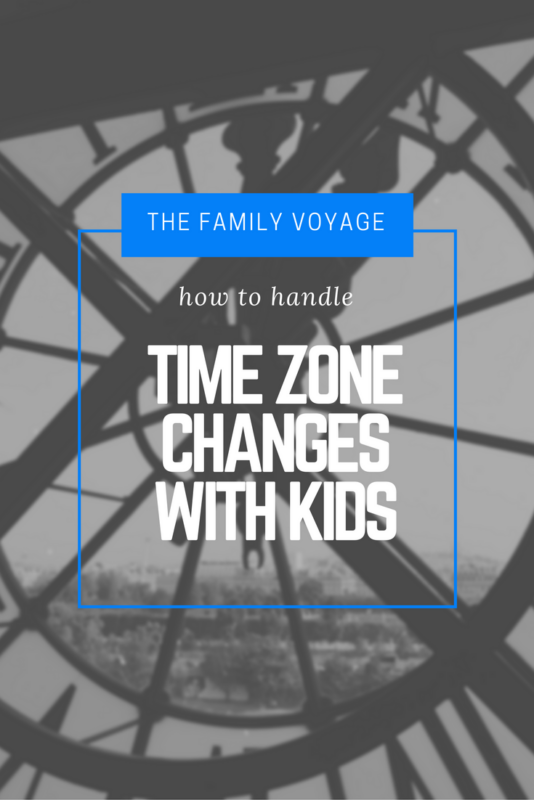Changing time zones with kids is never fun, whether it’s a 3 hour difference on a visit to Nana’s house or a 10 hour difference between LA and Israel. When we first started traveling with Jacob, I can’t tell you how many times I searched the internet for “time zone changes with kids” or “jet lag baby” but still struggled. As our kids have gotten older, it has gotten easier and we have become better at managing the disruption.
Jet lag prevention for kids
Some people take the approach of making slight schedule shifts before travel to ease the initial shock. Quite honestly, we’ve never been organized to even consider it. If you can make it work without disrupting family life too much, shifting by up to an hour before you ever leave home could be a great help.
On the plane, everyone should try to get as much sleep as possible of course. Here are some great tips for helping babies sleep on planes. Our kids have always slept best on the plane in their rear-facing car seats, which have a nice recline. Shoshana is very attached to her aden + anais lovey, so usually I bring that out when it’s rest time.
Read more: MUST-HAVE travel baby gear to make your life easier
That said, for us the adjustment has sometimes been easier when the kids get just enough sleep in the air: we may let them nap a little in the car or while we stroll looking for dinner, but they’re tired enough that when we eventually put them down for the night no one is complaining even if it’s only 2pm at home! Fortunately, by virtue of their nature and our experience in family travel our kids are blessedly flexible. Your mileage may vary with your own kids depending on their disposition (though there are things you can do in your daily life to help them be better travelers).

At your destination: A tale of two trips
The first day with a big time difference is just hard. We usually try to push through the overwhelming urge to nap, but we do let the kids nap for a few hours (usually no more than 2 hours) basically anytime they’re tired. However, we’ve learned to make sure they get some sunlight and fresh air if we arrive during the day and a decent dinner if we arrive in late afternoon or evening. No matter what time of day it is, make sure everyone stays hydrated!
Our first big trip abroad was to Spain when Jacob was 14mo. He had a rough flight (hours screaming in the lav while the other passengers tried unsuccessfully to sleep) and then there was an issue getting into our apartment, so by the time we headed out for dinner he passed out in the stroller. Ronnie and I counted our blessings as we enjoyed a few quiet hours of tapas and wine.
Unfortunately, fate and Jacob had payback in store for us: it was THE WORST night of sleep any of us have ever had on a trip. He was up every hour or two screaming his head off, totally and utterly confused by what was going on. We slowly worked through the toddler sleep challenges over the next few nights, but it was a rocky start to say the least.
Should you travel with your infant? Find out why it’s worth doing!
By contrast, Shoshana’s adjustment in Ireland when she was just a little older went much smoother. We had a lot more family travel under our belts by then so we all handled the transition better. Our flight arrived in the mid-afternoon and we were settled into our apartment ready to head out for a walk by early evening. The kids had snoozed on the drive to our apartment and snoozed again on our walk to dinner, but neither was enough to disrupt their sleep later in the night. By the time we went to bed at 10pm (nap time back home) everyone was exhausted and slept through the night. A travel miracle!
When we traveled to Israel (a lot of travel) we actually arrived late at night. We were able to put the kids straight to bed and didn’t hear a peep until morning. In fact, they all slept so long and hard that I snuck out to the corner store and picked up breakfast provisions before anyone noticed. By far the best way to start a vacation!
Another helpful strategy is to keep your child’s routine as similar as possible. If you do bath/books/bed at home, try to reset their body clocks abroad by following the same pattern. Remember, babies and toddlers are creatures of habit! If you have the option to bring your own toddler travel bed for the trip, consider setting it up at home for a few nights before your trip to start getting them used to the new sleeping arrangement.
Related: Is this the best airline to fly with kids?
Coming home
Some people find coming back to the US from trips east to be easier than the reverse, but we have found it harder with our kids. They fall asleep easily but then wake up disoriented during the night. To speed up “re-entry” we always ask caregivers to limit afternoon naps to three hours, cutting back to our standard two hours after a few days. Even though their little bodies are ready for night sleep in Europe, we want them to be up for a few more hours!
These days, we run the kids so ragged when we travel that they usually sleep through the first night at home. The second night they wake up a few hours earlier than usual, crushing our false sense of security. It usually takes us a day or two to get totally back on schedule from a trip to the east coast, and longer distances take us almost a week.
Read more: How to give your baby a bath when traveling
Another way? Our best tip for changing time zones for kids
By far our favorite strategy to decrease the impact of time zone changes on your kids is to never transition them all the way when traveling east. For example, our kids typically go to bed at 8pm here in LA. When we visit my mom three time zones away in Virginia we might set their bedtime at 10pm, only an hour difference from life at home. Our kids don’t have a rigid schedule anyway, so any hour either way doesn’t require any adjustment on their part. In Ireland the kids often went to sleep at 11pm (3pm in LA) after an evening of listening to music at the pubs, so the effective time difference for them was only five hours. This strategy has made it easier to transition on arrival at our destination and upon return home. Again, your success with this method depends on your child’s disposition, but flexibility is key to successful travel with kids and might be worth “practicing” before you even hit the road.
What are your secrets for handling jet lag with a child?
Before you go…
Are you thinking about traveling internationally with a baby? Be sure to read expert tips for a smooth experience!




Interesting post! Good to keep in mind for the future 😉
We use some of these tips for ourselves too 😉
Very interesting post!
I don’t have kids yet, but as I know that sometimes jetlag could be really hard for adults, I always wonder how kids feel it…
I will keep your tips in mind, it can be helpful in the future ! 😉
Kids mostly feel confused by the time changes!
I have a hard time dealing with the time zone changes, so understandable that kids would have a hard time too. I do like you tip about just staying on the current schedule, it makes a lot of sense.
It works great!
Sound advice! And well needed as traveling with kids to another time zone can become a nightmare! I love your suggestion about not transitioning them all the way.
That has been the most helpful trick for us! It keeps everyone’s stress level low.
Something that I hadn’t ever considered – seems like you learn these things on the job, but I love that you are sharing these suggestions for other parents. Btw Sleepy Shosh is the cutest!
Thanks! She’s just as cute awake 🙂 She is such a sweet, joyful little person.
pinned to remember for my next trip! To Hawaii, our kids SLEPT the whole leg LA- Maui and arrived not that tired. By 2am, they were awake FOR THE DAY. (We were not) it was painful. I was def not my best self. But we did adjust. We made them stay until 7pm the next day (after a failed nap attempt) and it slowly got better.